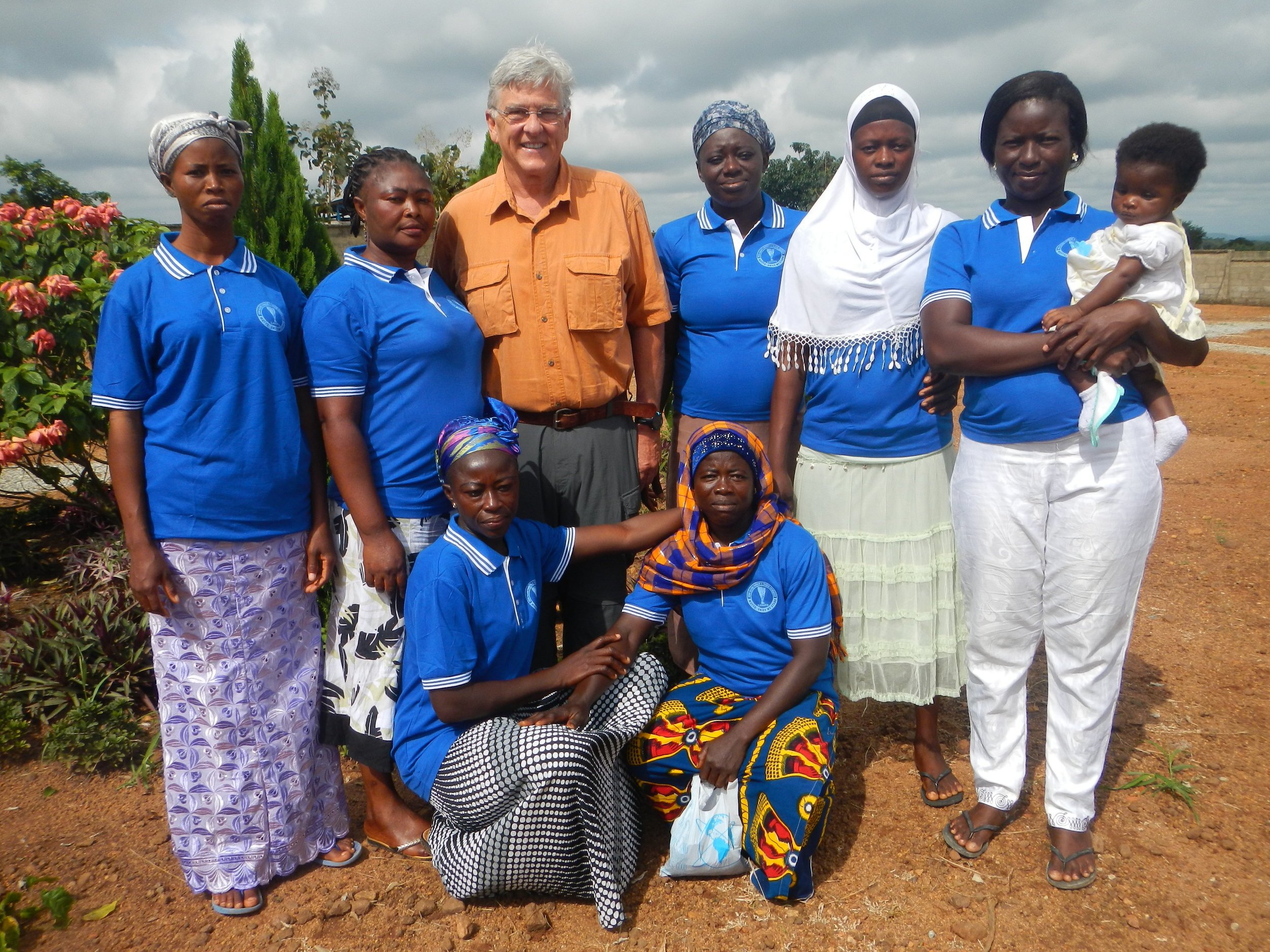Climate Change and Agriculture Production in West Africa
At the end of 2017, Minerva’s Karl Van Orsdol, was sent by the US Agency for International Development to Ghana in West Africa to examine the operations of an agricultural cooperative and assess through a case study how community collaboration could provide resilience against climate change. This article is a summary of his work.
I worked with the Ejuratia Farmers and Traders Association, located in central Ghana. Starting operations in 2015 the group’s members mainly cultivate cassava under rain-fed conditions on an average of 2-4 acres of farmland. The group currently has 25 members of which 12 are women. The Coop owns and operates a one-acre communal farm planted with cassava, cocoa, bananas, oranges and tomatoes which generate income for the members.
Agriculture and Climate Change
Agriculture is the most climate-dependent area of human life. In Ghana and most of sub-Saharan Africa as well as many developing countries worldwide, agriculture continues to play very significant roles in national economies. Climatic factors are rarely stable being characterized by high inter-seasonal to inter-annual variations everywhere in the world. For countries such as Ghana with 70% of its population deriving their livelihood from agricultural activities, changes in climate must be issues of great concern. The government of Ghana has taken a number of policy decisions towards mitigation of, and adaptation to climate change impacts.
Overall rainfall patterns in West Africa have demonstrated a significant decline since the 1960s. This is due to both local and global factors. At the local level, deforestation of much of the tropical coastal forest along the west African coast has resulted in less accumulated precipitation inland. Predictions from the Intergovernmental Panel on Climate Change (IPCC) have predicted warmer and dry trends for the agricultural centres of West Africa.
Temperatures in Ghana have increased by about 1 C over the past 40 years. Ghana is getting warmer and dryer leading to negative effects of warming on agricultural production in tropical and subtropical regions, where yields are predicted to decrease due to excessively high temperatures and increased drought risks and higher frequency of extreme climatic events. In Sub-Saharan Africa, climate change is generally projected to cause considerable yield losses in most agricultural crops. Adaptations to climate change in agriculture are particularly challenging in developing countries, but also extremely important.
Possible Resilience Solutions
My work with the cooperative set out potential avenues to enhance resilience to climate change. The Cooperative began diversifying its crops and reduced its reliance on single corps for much of its income. It also established local afro-forestry buffer zones around crops to allow for natural processes to reduce heat islands and extremes and preserve local soil moisture.
These activities should contribute to the resilience of the community and enhance food security. Africa is undergoing rapid urbanization and subsequent transformation of its food systems to accommodate changes in food processing and marketing as well as in food consumption patterns. Considering the increasing reliance on purchased food in urban areas, approaches for addressing the impacts of climate change on food security will need to encompass a community agriculture approach.

